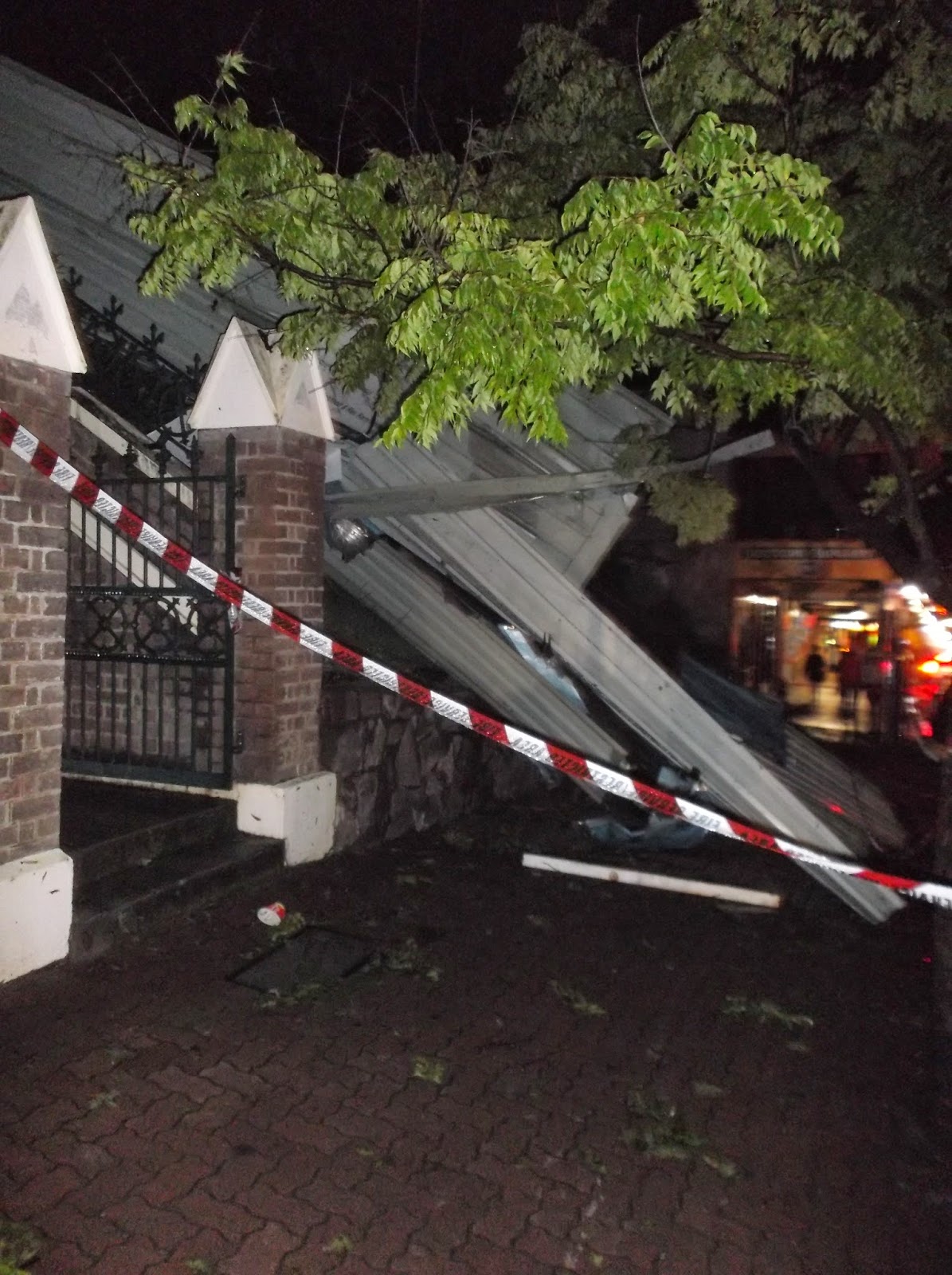Wednesday. The queen street mall and we're hummingbird shopping. Our eyes flit from store to store and we walking but never stopping. Aromas of at least seven kingdoms in a marvelous food market- a bubbling yummy concoction that's too hot to touch.
South bank is just as lesuirely as always; like a cool breath upon a harried soul. Even though my feet feel like over grilled fish we meander through QAG(the art gallery) until my eyes are permanently wide and my elbow are getting cold from the air conditioning. At night we experience some night life on boundary street at the beach burrito. Warm air and frozen margaritas, that's the life.
Thursday.
Busy streets, to a gigantum Moreton Bay, whipped green toilet water rising beach less towards us in the most disturbing fashion. A cute water park; slides and mushrooms.
Hell in circles past Roma Street and all I wanted to do was get out and take a picture of the spectacular blue storm clouds behind the sky scrapers and cathedrals. Unnatural as though it was trying to pass for a cloudless sky to those city dwellers so focused on their work. And still it was dark as though you could fall through it into some new dimension. Stuck yet as the rain begins on the right side of the river traffic jams hard, all the cogs locked into stasis. An object slams my window and turning I watch splinters of white dart away. The size of my fist shattering a second time on the black road. White ice. A rageful motorist launching their fury off the bridge above at me. Or not I find mere minutes later.
Smashing onto my side of the car is everything mother nature can throw. Fist sized balls of ice sound like viking hammers. Thrashing trees and twigs thwack the windscreen. Rain sloshes and splashes on every side. Stuck still. Red brake lights sneer at me through a wall of Grey and we might as well be stuck in a cyclone. A tiny tin car, fragile glass windows just being hammered by divine fury. Please don't break. Please don't break. Please. Its not like I can hear anything over the storm. Can't go forwards, can't go backwards, no way to go around. My sister almost two in the backseat awoke in terror. I masked my panic and helplessness with those reassuring adult smiles that lie and lie and lie. There was nothing more to do.
 Like countless others even as the storm eased we were blown off course, battered driftwood far from home. You're always told: "Don't drive through floodwaters" but we had nowhere else to go. In my mind I replayed images of dirty rvers in the road just like that one about those cars that rose u predictably. A branch like that once carried on the flood or one larger, dangerous half a tree swept down to pummel the exhausted refugees. Finally, tsunami, flood or cyclone I used to watch cars picked up like toy boats sickenly turning upon their side, or drowned under in waters to unknowable to fear. The fuel light again shone. My eyes were skewered when I glanced right, the shattered shards of the plastic window guard crushed beneath its onslaught.
Like countless others even as the storm eased we were blown off course, battered driftwood far from home. You're always told: "Don't drive through floodwaters" but we had nowhere else to go. In my mind I replayed images of dirty rvers in the road just like that one about those cars that rose u predictably. A branch like that once carried on the flood or one larger, dangerous half a tree swept down to pummel the exhausted refugees. Finally, tsunami, flood or cyclone I used to watch cars picked up like toy boats sickenly turning upon their side, or drowned under in waters to unknowable to fear. The fuel light again shone. My eyes were skewered when I glanced right, the shattered shards of the plastic window guard crushed beneath its onslaught.Perhaps chaos could describe what we saw through the dropping rain. The trees had to have been savaged to provide such a litter along the streets. A tin shed and a corrigated patio- one slumped exhausted on the path and the second a twisted traffic stop. But over the panic that fluttered every heart - why what had occured- a steely layer of boredom grew at the unmoved tail lights before me. Stuck somewhere new but stuck fast, not even the rain left to convince you that peak hour requires patience.
Is there anything that can make you feel better after such an experience? Strangely the devastation around us. We pass into a new street and there a typical two storey hotel faces mournfully south. The top floor windows smashed right in. One two three four five six. Busted blank holes. And its not the only one. We pick them here there and everywhere, glass joining the leaves upon the street.
To the north the clouds are angelic. The fluff and catch the last of the sun, rimming a perfect blue. A tease. Then south that steel grey sheeted the sky still in warning. Go home it screamed while you can.
Then. Blackout across eighty two thousand homes. The city still burns over the river, painting the night sky red. Top side of the street well light, packed with hungry people with no way to cook for themselves. And then like a slammed door across the bustling footpath the lights stop. Supreme darkness has taken the lower end. There you just glimpse the writhing of bodies. In the dark they move the same as us. But it is inky there and so we turn back. These traffic lights are on, shiny green. Yah, go!















